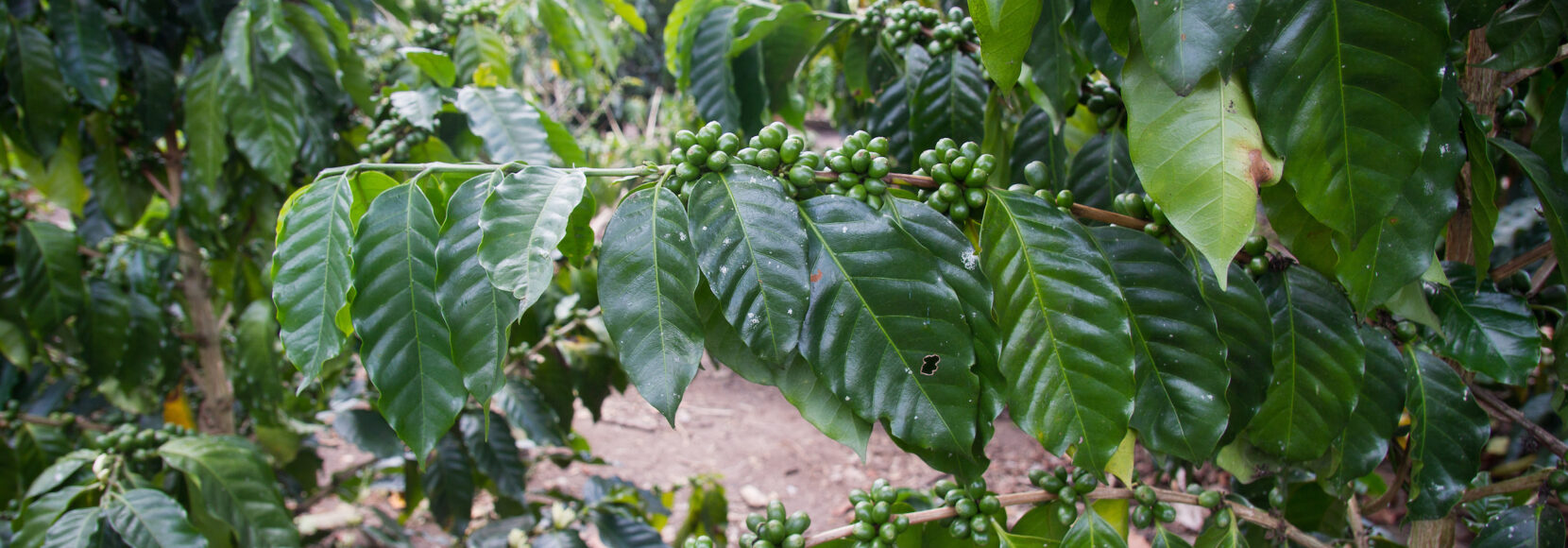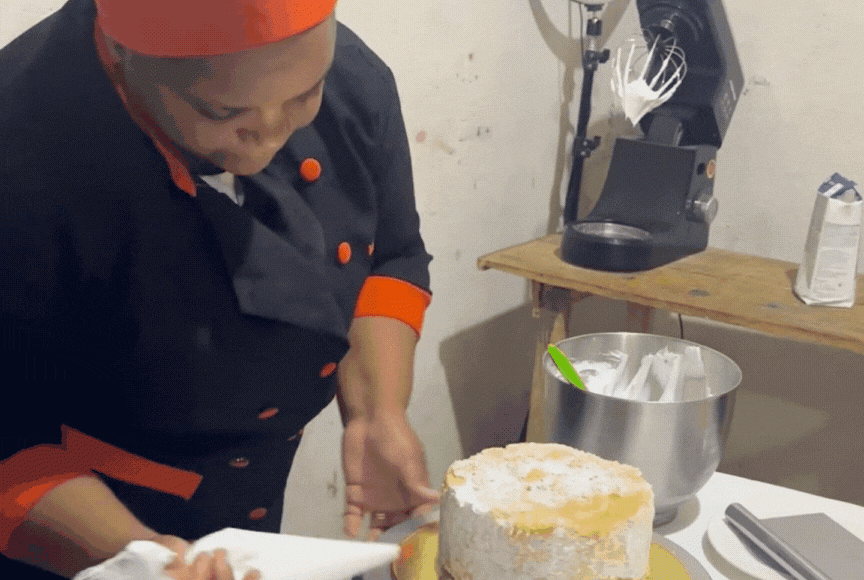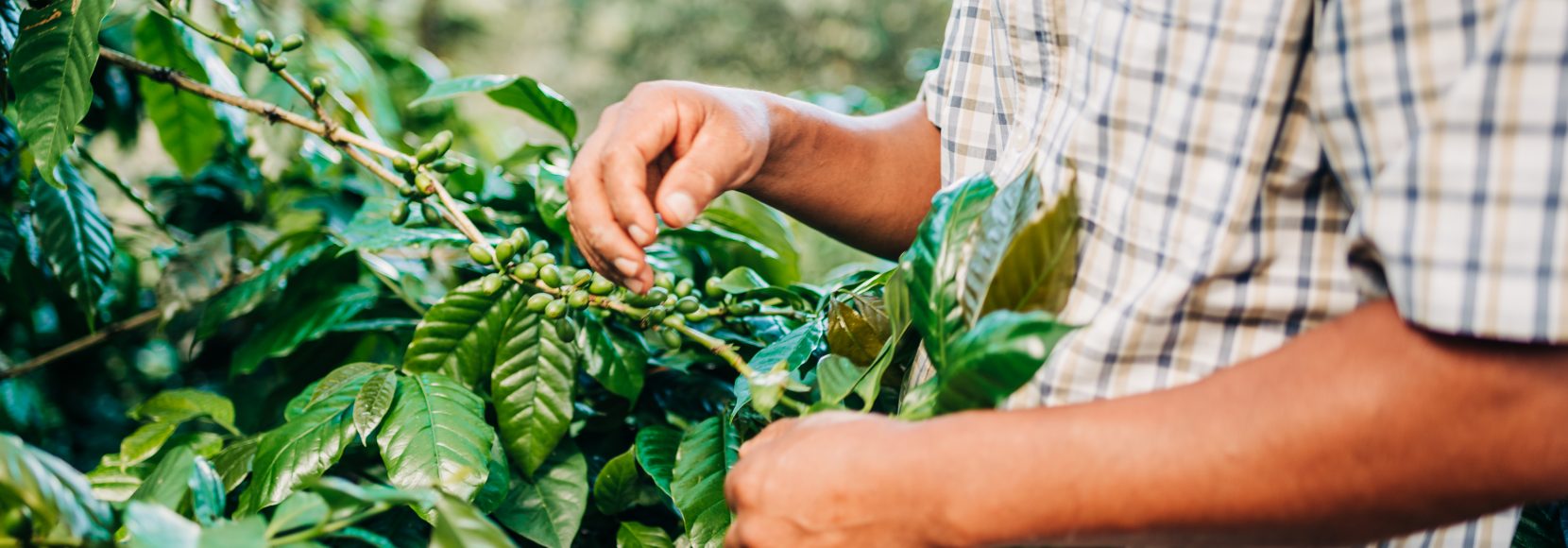
Third Generation Nicaraguan Coffee Farmer Refuses to Give Up: “I Am Proud to Emulate My Ancestors.”
The last coffee farmer in his family, Axel Gutiérrez took TechnoServe training to heart as he tried to keep his farm operational. Now, after much hard work, he expects to double his profits this year.
Amid rolling green hills and a lush inland valley lies the Jinotega department of Nicaragua. This north-central region of the country has stood out for its coffee production for more than a century.
Three generations ago, the Gutiérrez family began farming the hilly land of Jinotega. And they’ve grown coffee ever since.
Back in 2001, their grandfather died and economic struggles ate away at the family until they weren’t able to continue producing coffee. The family lost all the coffee plantations, and used the land for growing other crops. At that time, Axel was just a child, but the love for the land ran through his veins.
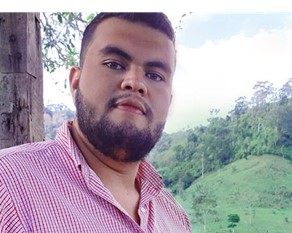
Axel, 27, grew up living and breathing coffee. Alone among his family members, he couldn’t imagine walking away from the trees cultivated with care over generations.
Instead of trying to farm, though, he decided to start a small nursery that supplies plants to the coffee growers of the region.
“I [just] hoped I could make money,” he reflects.
Knowledge Sharing Paves the Way to Success for Nicaraguan Coffee Farmers
There was only one problem: Axel had very little knowledge of production techniques and the good practices that would allow him to be successful.
“I had no training, no formal advice,” he says today as he waters the growing plants on his farm. “I made a lot of mistakes because I knew almost nothing about nurseries. But I always worked with the hope of achieving a better future for my family.”
The past few years have taken a major toll on Nicaraguan coffee farmers and producers – Axel included. Nicaragua is the poorest country in Central America and, in addition to dealing with the COVID-19 pandemic, is highly vulnerable to climate change due to its geographic location in the path of Atlantic hurricanes and production systems heavily dependent on natural resources.
In November 2020, Hurricanes Eta and Iota ravaged several departments across Nicaragua, including Jinotega. Rain, landslides, and flooding tore through infrastructure, farms, and homes – leaving some 3,400 hectares of coffee farms damaged.
Inadequate access to credit, lack of funding, and increases in supply prices all complicate coffee production for farmers across the country. And since an estimated 95% of Nicaragua’s coffee farmers are small-scale producers, these challenges are an immense barrier to earning a steady income.
Axel knew all this. But he remained undeterred.
Training and Determination Make All the Difference
One day, a TechnoServe advisor came to Axel’s house. He told the young entrepreneur about a program that provided farmers with better production techniques, information about quality standards, and market research to enable them to increase the profitability of their nurseries.
We are happier, more motivated, and more hopeful for the future.
Axel Gutiérrez, Coffee Farmer, Nicaragua
The Viverista de Oro (“The Golden Nursery Operator”) program, which has trained more than 170 nursery operators, was developed within the framework of the project Maximizing Opportunities in Coffee and Cacao in the Americas (MOCCA) in Nicaragua, El Salvador, Honduras, Guatemala, and Peru.
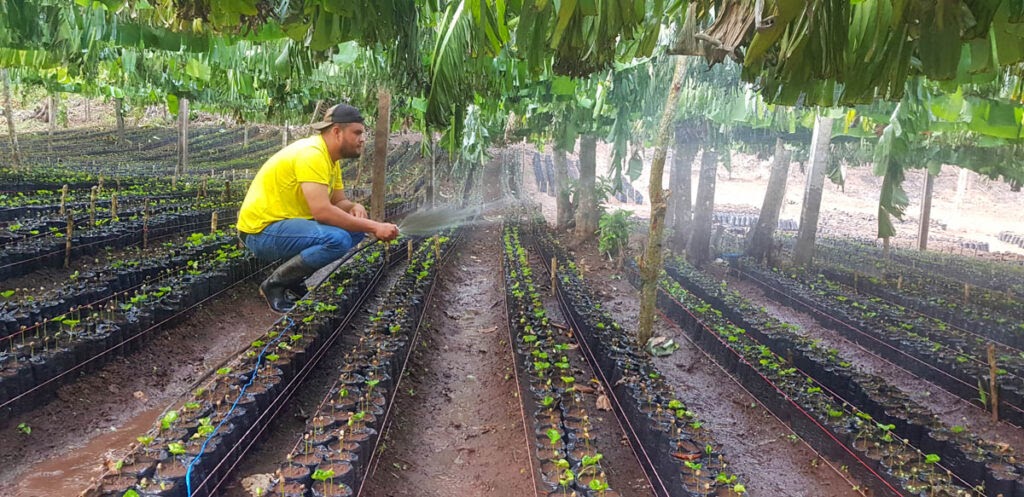
Axel, knowing the challenges he faced, was determined to join the program and revitalize his family’s farming legacy.
“I became a ‘Golden Nursery Operator’ and learned about the importance of records for the projection of costs and profits – now I have better control of my income,” says Axel.
Axel enrolled in the program in 2020 but due to COVID-19 restrictions, most of the training he received was online. He graduated with his cohort, but wasn’t done learning. He asked to participate in group face-to-face training in 2021.
Having now received his program training certification, Axel has managed to increase the production and profitability of his nursery. Before the TechnoServe training, Axel produced 30,000 plants that he sold to local farmers; now the improvements on the nursery administration and better agricultural practices allowed him to increase his production to 100,000 coffee plants a year.
Axel Takes His Family Back to Their Coffee Roots
Axel is excited not just for the future of his company but to be able to reintegrate his family back to coffee production. This year, part of the plants he produces at his nursery will are destined to reseed two manzanas (0.7 hectares) of coffee on the family’s land.
He attributes his success to many of the lessons he learned from the TechnoServe program: more orderly administration, market surveys, better record-keeping, and overall better management of the company.
And the improved income has helped him achieve a long-standing dream: “I was able to travel,” he says with excitement. “I had been wanting to do it for a long time and had not been able to visit other areas of Nicaragua and learn about other production practices. [But now I can] learn and apply those that are possible on my farm.”
Thinking about the future, Axel wants to “achieve stability” and help his two permanent employees “obtain what they need to live.”
There may be challenges ahead, but Axel and his fellow Nicaraguan coffee farmers have demonstrated resilience in the face of natural disasters and COVID-19, showing Axel what is possible with dedication.
“We are happier, more motivated, and more hopeful for the future,” he adds with a smile.



